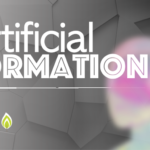Do you consider yourself a “leadership educator” within your role in student development? Previous research (Dunn et al., 2019) identifies that student affairs practitioners are considered leadership educators by experts in our field. Whether you work directly with leadership programs at your institutions or not, you probably have (or have had) experiences where you are helping students cultivate their ability to lead. Leadership growth is often built into our mission statements, on either a departmental or even institutional level, and is often an outcome of interest in our programmatic efforts.
As both an espoused value and enacted practice, it is clear that we often seek leadership growth for our students. It is also clear that others perceive us in student development as leadership educators. However, what competencies do we need to ensure we are able to adequately reach these standards and expectations?
Dunn, Moore, Odom, Briers, and Bailey (2021) recently published an article about the necessary leadership educator competencies for entry-level student affairs leadership educators. They conducted a Delphi study to hear from experts in two groups, (1) student development practitioners, and (2) faculty in student development graduate programs. Participants indicated and described the competencies (regarding knowledge, skills, abilities) they felt entry-level practitioners needed for work in the field. They then compared the responses from both groupings and what they found was quite interesting: the lists were pretty different.
The authors note that the disagreement between student development practitioners and higher education/student affairs faculty is consistent with previous research that outlines discrepancies regarding necessary practitioner competencies. This distinction can further embed the challenge that many in student development find concerning which leadership competencies are essential and how to teach them effectively, as Komives et al. (2011) identified. From the two groups utilized in the article, 141 competencies were identified, 60 for the practitioners and 81 for the faculty. However, only 13 (9.22%) were duplicated between the two panels. This “sweet spot” so to say, is where I want to focus for a moment. The list below identifies the knowledge, skills, and abilities that both samples indicated as most important:
| Knowledge | Skills | Abilities/Attributes |
| Self-understanding | Reflection | Challenge Students Appropriately |
| Team & Group Dynamics | Problem-solving | Being a Continuous Learner |
| Social Justice | Listening | Patience |
| Effective Oral & Written Communication | ||
| Critical Thinking | ||
| Effective Conflict Negotiation / Management | ||
| Organization |
I am left wondering, based on this list of competencies, what might a distinctly Christian approach to student development imply for cultivating these things? For one, I think that these are all critical competencies to nurture as a practitioner (as the experts who contributed in this study would also argue). However, as we aim to animate our work with Christ, I believe we also need to incorporate markedly Christian concepts of growth.
For example, certain virtues we can aim to embody (some that are emphasized in scripture) will make us better Christian leadership educators in our roles. These might include caring, discernment, grace, humility, and hospitality. Developing these will allow us to then in turn facilitate their development with our students. It was also encouraging to see how some of the identified competencies from the study connected to certain fruits of the spirit (Gal 5:22-23). Patience made the list on its own, but self-understanding, listening, and conflict management are tangentially related to such fruits as self-control, love, and peace.
The authors (Dunn et al., 2021) indicate the difference between leadership development and leadership education in their article. They note that “leadership development” is the broad umbrella term for an individual’s growth or advancement in their leadership capacity and competency throughout their life. They then define “leadership education” as the means through which individuals who are committed to and engaged in the leadership process learn, hone, and practice these leadership competencies over time. As a result, they identify the field of student affairs as an applied context for leadership education.
So, I opened with a question, “Do you consider yourself a ‘leadership educator’ within your role in student development?” If you answered “no” to the question, then I would urge you to reconsider based on existing research. In fact, you are probably in an role that provides you an opportunity to help students grow as leaders, and I encourage you to take advantage of that by adopting this professional identity. If you answered that opening question in the affirmative, do you feel you embody the competencies that the authors identified as needed for student development professionals? And furthermore, from your Christian perspective, what might be added to that list to make it distinctly Christian?
Questions to Ponder in Your Next Staff Meeting
- How, if at all, are we defining our roles in student development as “leadership educators”?
- Why might this be an important aspect of our work?
- What competencies from the shared knowledge, skill, abilities list are strengths of ours, individually, and as a team/department/functional area?
- What could we do to continue building these competencies?
- How might we think about this list from a Christian perspective?
- What might be missing?
References
Dunn, A. L., Moore, L. L., Odom, S. F., Bailey, K. J., & Briers, G. E. (2019). Leadership education beyond the classroom: Characteristics of student affairs leadership educators. Journal of Leadership Education. 18(4), 94-113.
Dunn, A. L., Moore, L. L., Odom, S. F., Briers, G. E., & Bailey, K. J. (2021). Necessary leadership educator competencies for entry-level student affairs leadership educators. Journal of Leadership Education. 20(2), 43-58.
Komives, S. R., Dugan, J. P., Owen, J. E. Slack, C., & Wagner, W. (2011). The handbook for student leadership development. Jossey-Bass.







